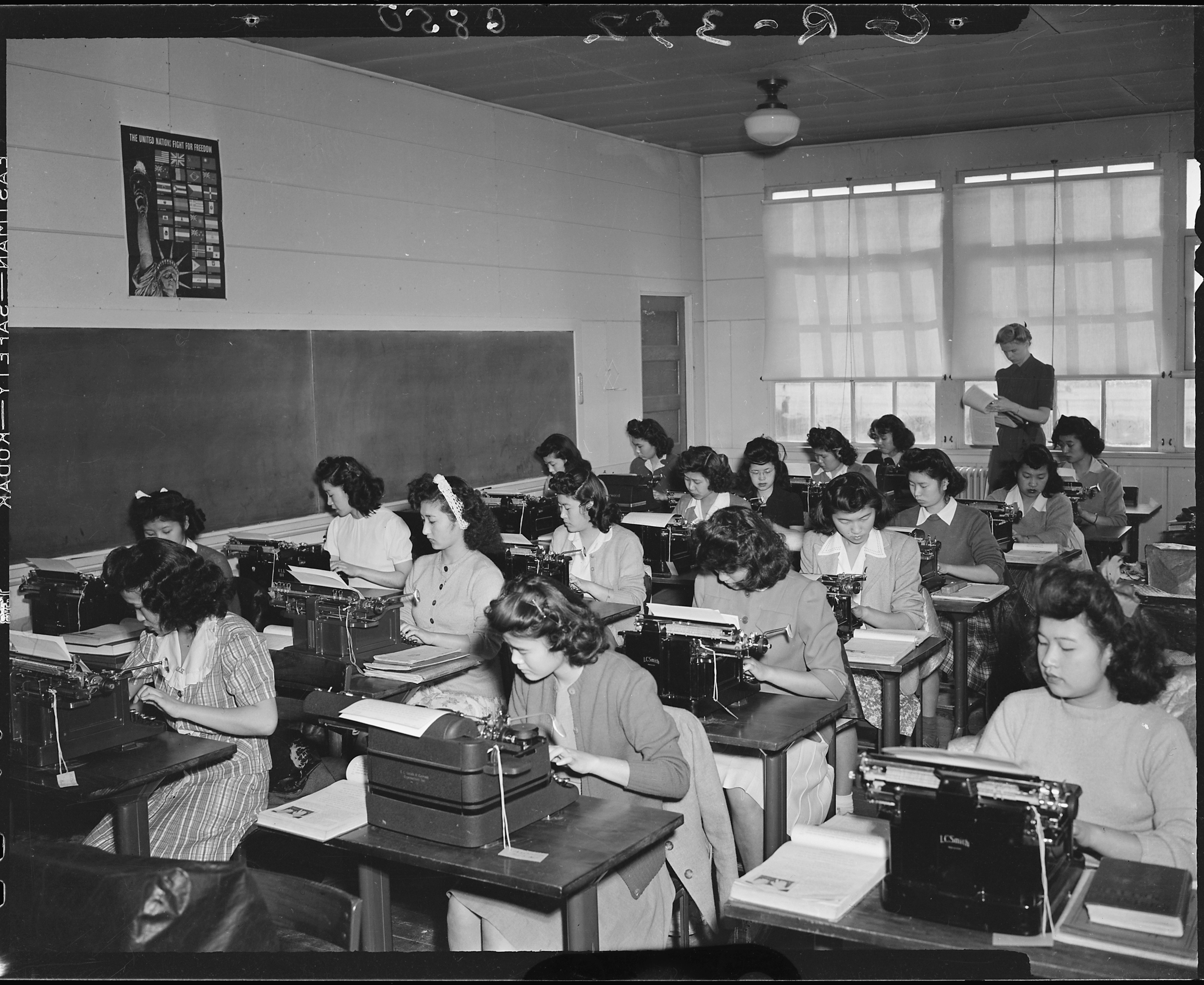
When I was in high school in the late 1960s, they still taught shop class.
Shop class for boys, Home Economics and Cooking for girls.
This was a LONG time ago, culturally at least.
But it was not so terrible. Between protesting the War in Vietnam, listening to The Grateful Dead and experimenting with certain then illegal substances, we also learned woodworking, metal shop, print shop and mechanical drawing.
I don't think they do that anymore.
(I am not even sure if they teach grammer (I don't think so) or history (maybe not) anymore.
Ah well.
But perhaps the most important 'shop' class I was required to take (as was everyone else) was typing. Touch Typing.
This was run by Miss Fannie Chaffee.
She was as strict and as mean as the day is long.
We all sat at manual typewriters and learned how to type without looking at the keys. If you looked at the keys, LOOK OUT! She was on you like a ton of bricks. I remember her hitting my hands with a ruler, but perhaps this is delusional. Still, she was strict.
ASDF JKL;
"Show me your 'I' finger, Miss Chaffee would order.
For those who can still touch type, this was considered the height of humor in class.
In any event, against my will, I learned how to touch type at about 60WPM, which I can still do to this day.
In the late 1960s, the only people who actually typed were secretaries. And I had no intention of ever becoming a secretary. I could not see the value of the skill. In the future, (I assumed) I would sit in my office, dictate memos to my secretary (or at worst into a Dictophone) and the typing pool would type up my letters and memos.
Then, along came computers, and suddenly everyone had to know how to type. It was, overnight, an essential skill.
Thank God for Miss Chaffee!
Lisa was at The BBC when computers came in. She was working at BBC News, and until then, everyone had typewriters. When they brought in computers, they actually paid people a bonus of £1000 for the 'hardship' of having to learn the computer.
That's The BBC for you.
At any rate, in fairly short order it came to be regarded as natural that everyone would know how to type their own letters, stories, reports or whatever on their own keyboards.
Today, touch typing probably stills stands most people in good stead, although perhaps Miss Chaffee should have devoted a week or two to typing only with your thumbs. (I wonder what she would have made of that).
Office skill sets follow technology. It is the technology that dictates what is needed to survive and thrive.
Now we come to video.
Until now, video was regareded as a kind of mystery that was done by 'someonone else'.
If you needed video, you either hired a professioal production team or, if your business was big enough, you got the 'video guys from downstairs' to come and do whatever it was that they did when they arrived with their tripods and lights and stuff.
The 'video professionals' were are the equivalent of the Professional Typing Pools of the 1960s.
And, as with the typing pools and the stenographers and the secretaries from Mad Men who spent all day typing memos, this is all going to go away.
We live in a world of screens. And those screens have video. And video is the easiest way today to communicate a concept or an idea or to sell a product.
Particularly for a business.
And so, it is now necessary for businesses - any business, to become what I would call Video Literate.
That is, to be able to 'manipulate' video, to create video, on your own. To make it, to edit it, to post it, to share it.
Sorry for the professional in-house video crew.
Sorry for the people who used to work in the typing pool (one of my very first jobs, in fact).
But today, and even moreso in the future, video literacy will be an essential job skill for everyone.
Just like powerpoint
or typing.
The power of technology is irresistible. Resistance if futile.
Or, as Miss Chaffee would say, "show me your 'I' finger."
copyright 2016


